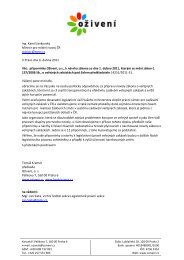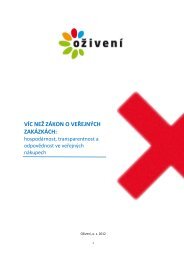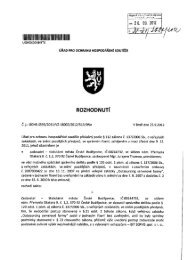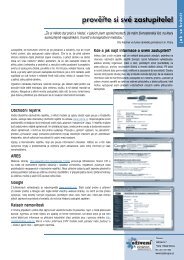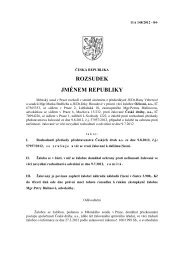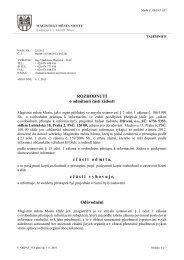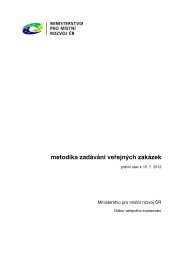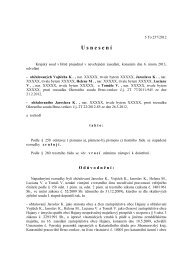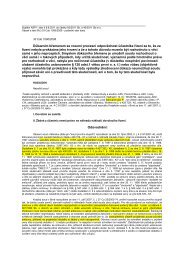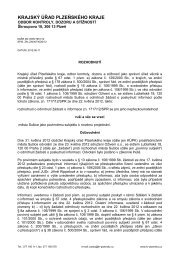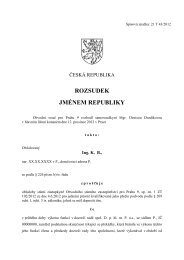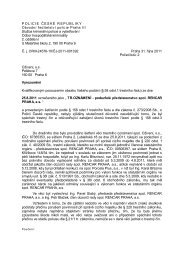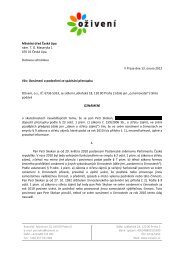Managing Conflict of Interest - Organisation for Economic Co ...
Managing Conflict of Interest - Organisation for Economic Co ...
Managing Conflict of Interest - Organisation for Economic Co ...
Create successful ePaper yourself
Turn your PDF publications into a flip-book with our unique Google optimized e-Paper software.
94 <strong>Managing</strong> <strong><strong>Co</strong>nflict</strong> <strong>of</strong> <strong>Interest</strong>or immoveable; (b) any <strong>of</strong>fice, employment, or contract;(c) any payment, release, discharge or liquidation <strong>of</strong> anyloan, obligation or other liability whatsoever, whether inwhole or in part; (d) any other service, favour or advantage<strong>of</strong> any description whatsoever, including protection fromany penalty or disability incurred <strong>of</strong> apprehended or fromany action or proceedings <strong>of</strong> a disciplinary or penal nature,whether or not already instituted, and including the exerciseor the <strong>for</strong>bearance from the exercise <strong>of</strong> any right orany <strong>of</strong>ficial power and duty; and (e) any <strong>of</strong>fer, undertakingor promise <strong>of</strong> any gratification within the meanings <strong>of</strong>paragraphs (a), (b), (c), and (d). 3• The <strong>Organisation</strong> <strong>for</strong> <strong>Economic</strong> <strong>Co</strong>-operation and Development(OECD) defines conflict <strong>of</strong> interest as a situationinvolving a conflict between the public duty and privateinterests <strong>of</strong> a public <strong>of</strong>ficial, in which the public <strong>of</strong>ficial hasprivate-capacity interests that could improperly influencethe per<strong>for</strong>mance <strong>of</strong> their <strong>of</strong>ficial duties and responsibilities. 4As such, conflicts <strong>of</strong> interest can result in improper privategains <strong>for</strong> the <strong>of</strong>ficial or other private party as well as publicloss <strong>of</strong> objective, neutral, and fair decision making or publicgoods or resources.• Michael McDonald (2007), from the W. Maurice Young Centre<strong>for</strong> Applied Ethics at the University <strong>of</strong> British <strong>Co</strong>lumbia,defines conflict <strong>of</strong> interest as a situation in which a person,such as a public <strong>of</strong>ficial, an employee, or a pr<strong>of</strong>essional, hasa private or personal interest sufficient to appear to influencethe objective exercise <strong>of</strong> his or her <strong>of</strong>ficial duties. The threekey elements in this definition are the meaning <strong>of</strong> private orpersonal interest, the scope <strong>of</strong> <strong>of</strong>ficial duty, and the nature<strong>of</strong> interference with pr<strong>of</strong>essional responsibilities.• The Harvard School <strong>of</strong> Public Health (2007) <strong>of</strong>fers anotherdefinition, distinguishing between “conflict <strong>of</strong> commitment”and “conflict <strong>of</strong> interest,” indicating that “conflicts<strong>of</strong> commitment” are situations in which the external activities<strong>of</strong> public <strong>of</strong>ficials (or members, in the case <strong>of</strong> university3Singapore Prevention <strong>of</strong> <strong>Co</strong>rruption Act (1960).4Quoted in Raile (2004), p. 2.ADB/OECD Anti-<strong>Co</strong>rruption Initiative <strong>for</strong> Asia and the Pacific



